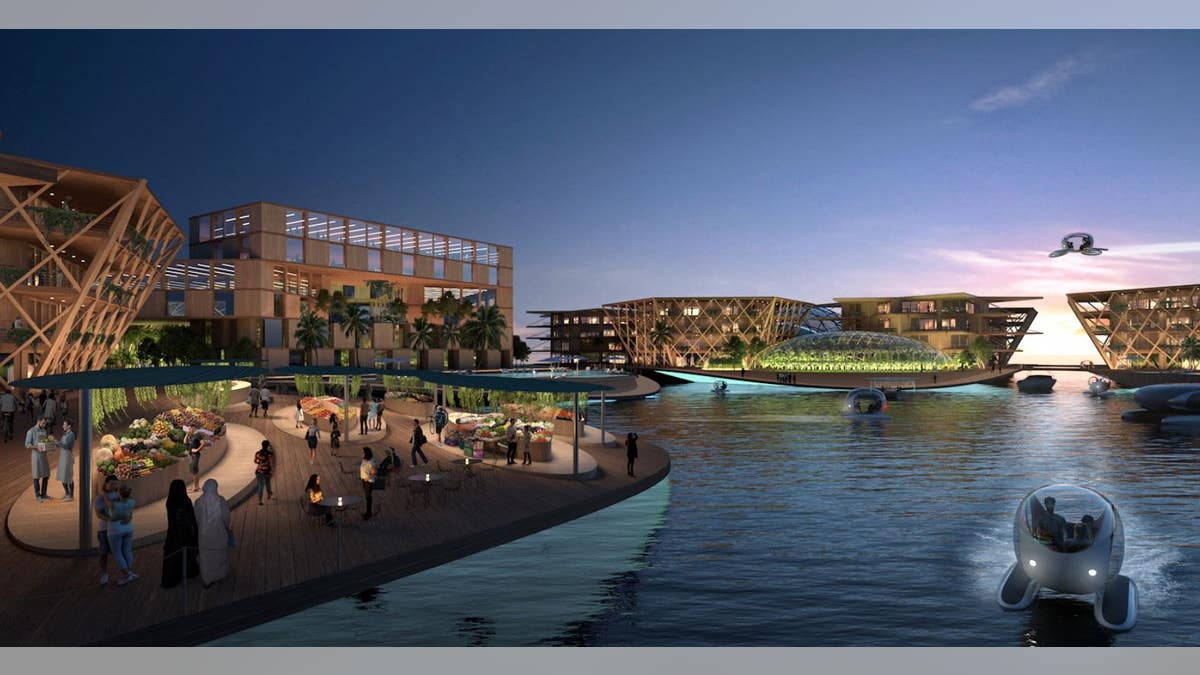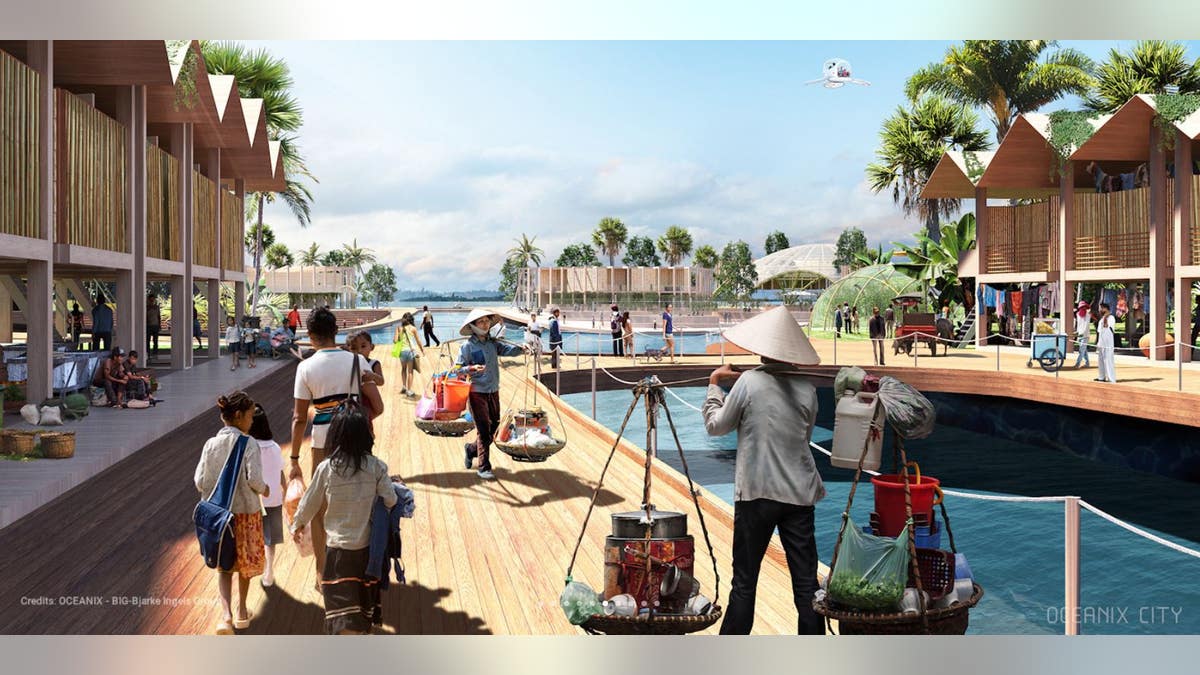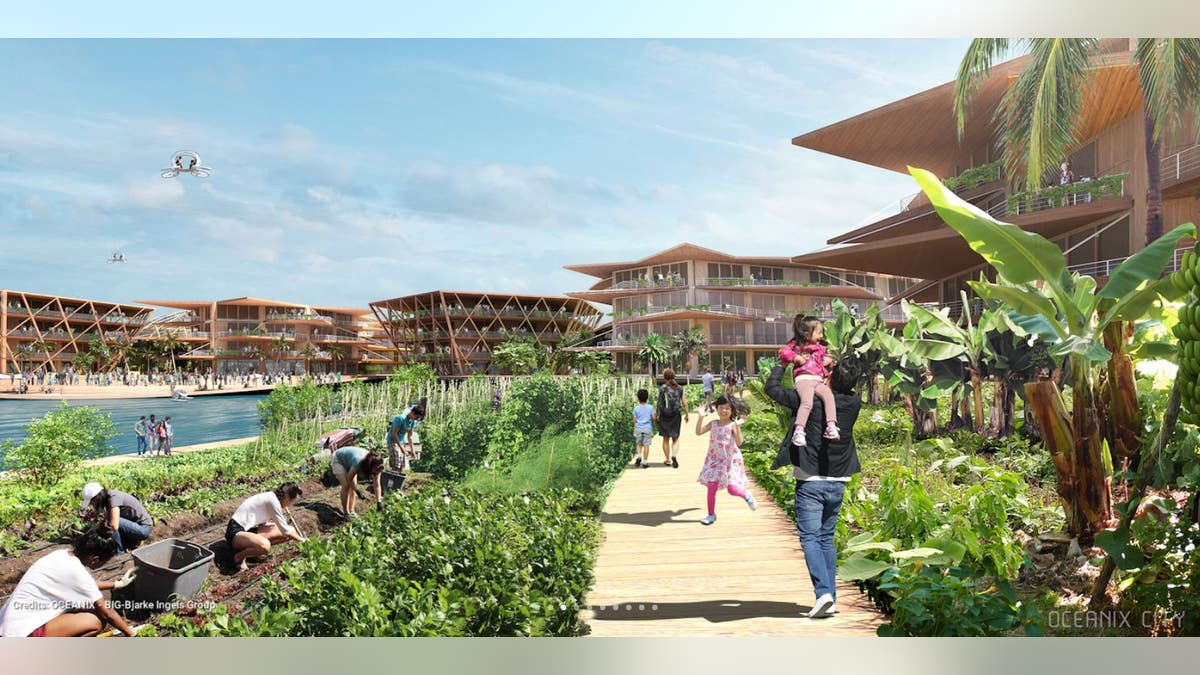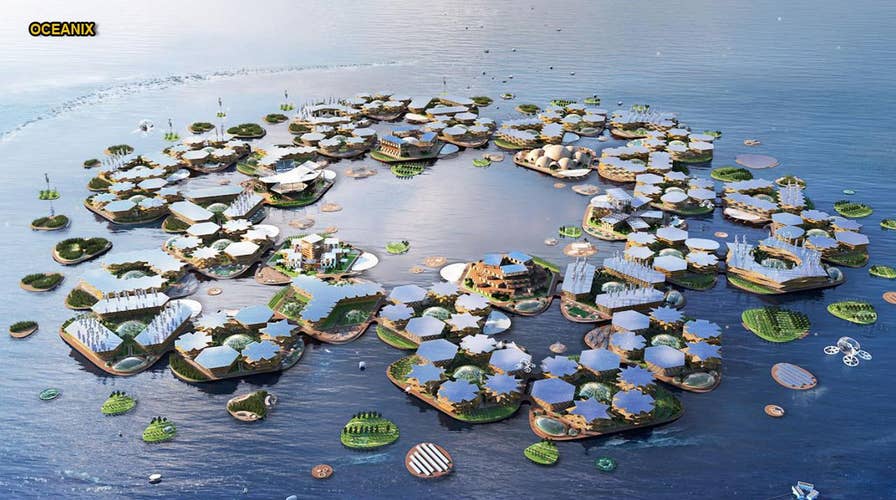This futuristic, floating city can withstand Category 5 hurricanes
UN Habitat and a company called Oceanix, want to build floating sustainable cities that can not only produce their own food and energy, but survive potential disasters caused by climate change. The floating cities would be a collection of hexagonal platforms that could each host about 300 residents. The entire city could house about 10,000 residents. UN Habitat has pledged their support for bringing the project to fruition.
Imagine living in a sustainable city that not only produced its own food and energy but also withstood natural disasters — all while resting out on the ocean.
Although it sounds like something concocted by a science fiction writer, the United Nations wants to make it a reality.
During a roundtable discussion convened by the United Nations Human Settlement Program (UN Habitat) and a company called Oceanix that's seeking to build floating cities, a group of designers and architects unveiled a concept for a floating city that would be affordable and able to survive potential catastrophes caused by climate change.
BEYOND PAPER STRAWS: MORE HACKS FOR REDUCING PLASTIC AT HOME

(Oceanix)
"Everybody on the team actually wants to get this built," Marc Collins, the CEO of Oceanix, told Business Insider. "We're not just theorizing."
The executive director of UN Habitat, Maimunah Mohd Sharif, pledged the international agency's support for actually bringing the project to fruition.
"We must ensure that the benefits of technological advances are a basic right, not a privilege of the few. UN Habitat is ready to provide the platform so that we can engage the best minds in every part of the world," she said in a statement.
The floating cities, designed by world-renowned architect Bjarke Ingels in collaboration with Oceanix, would be a collection of hexagonal platforms that could each host about 300 residents. A group of six platforms would make up a village and the entire city could have six villages, for about 10,000 residents.

MELTING GLACIERS ON ALASKA'S DENALI WILL UNLEASH TONS OF HUMAN POOP
The villages, which would not have cars or trucks, would use aquaponic systems and vertical farming to grow enough food to feed residents year-round. The platforms would be anchored by something called Biorock, which is a very strong material (harder than concrete) created by exposing underwater minerals to electrical currents. The cities can be seen in a series of concept images.
Oceanix makes its case for the ocean-based cities, which technically would be anchored to the ocean floor, this way: "As coastal cities struggle to cope with rapid population growth, many simply pour sand into the ocean to create new land. Unfettered coastal urbanization is destroying millions of hectares of the ocean and marine life; close to 50 percent of people in the world live in coastal areas. The rising sea and climate change are compounding the problem. ... We believe humanity can live in harmony with life below water. "

CLICK HERE FOR THE FOX NEWS APP
Other roundtable participants said the technological benefits could also be applied to land-based cities.
“If we are able to create a closed-loop system for floating cities, they will become role models for cities around the world,” Suzy Amis Cameron, an environmental advocate, said.

